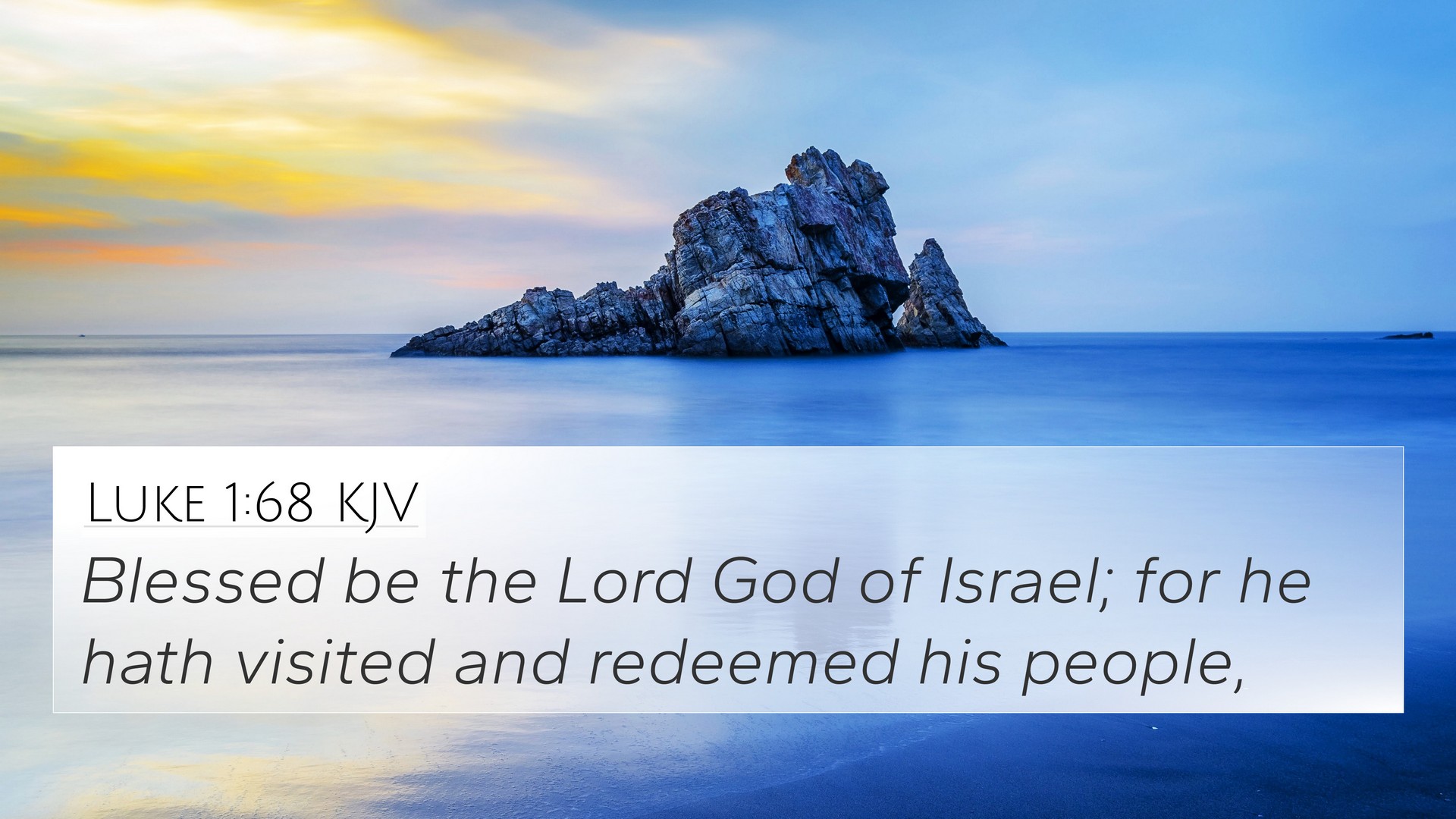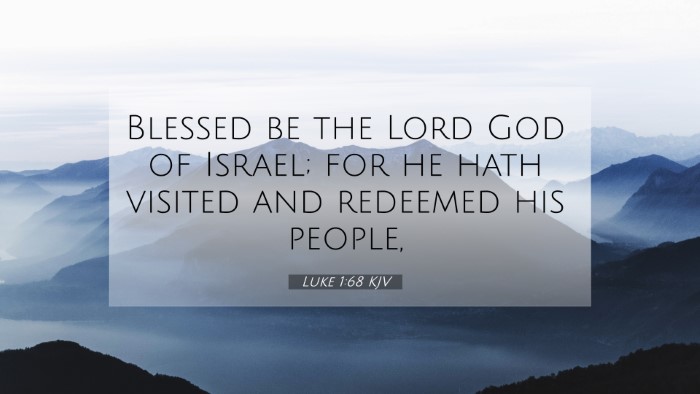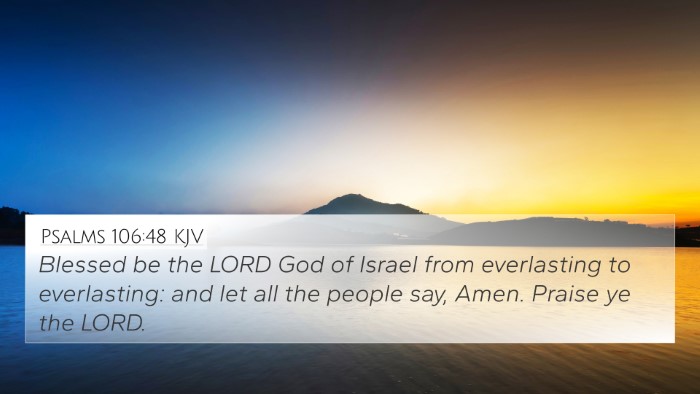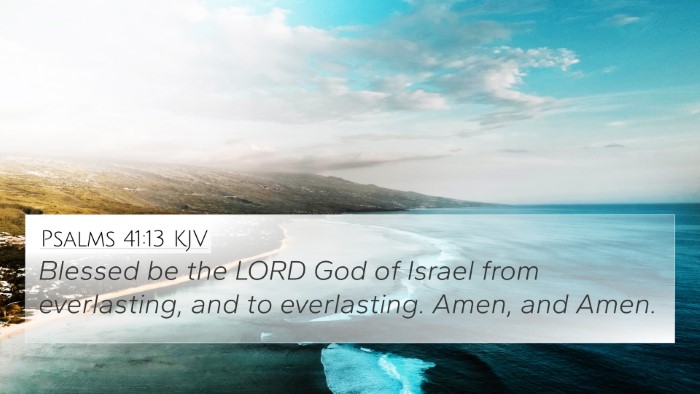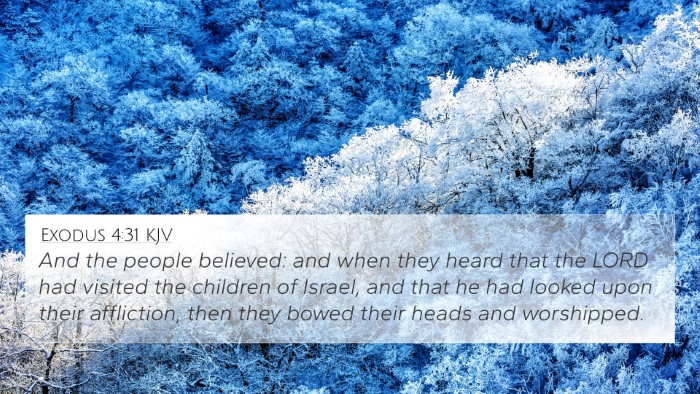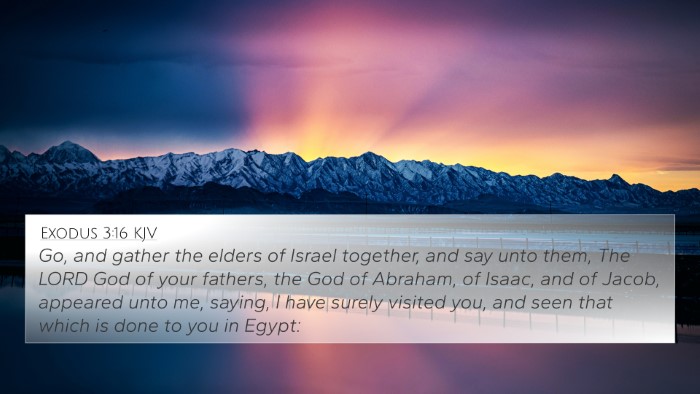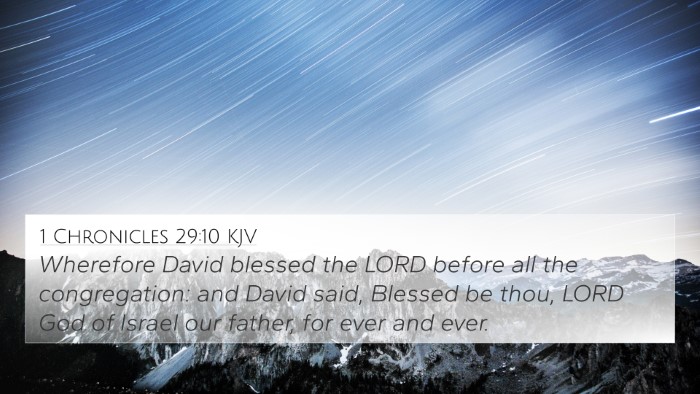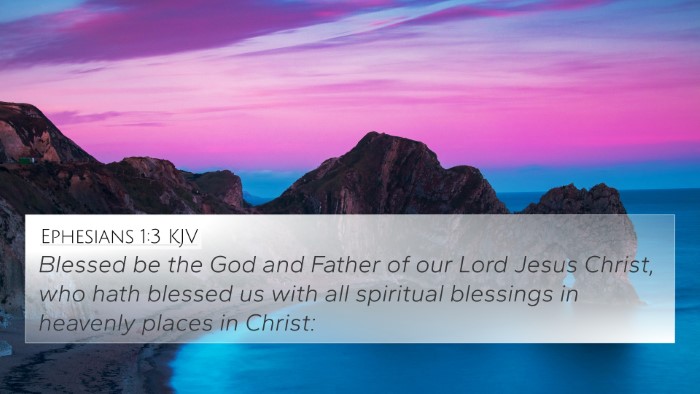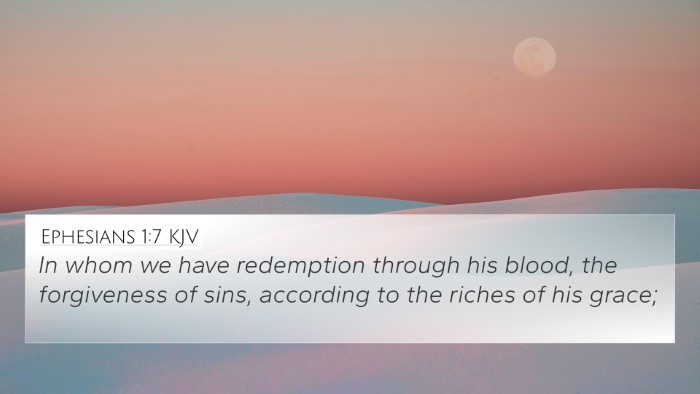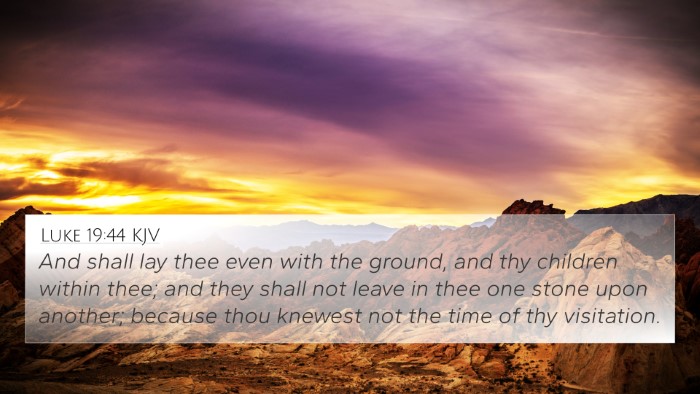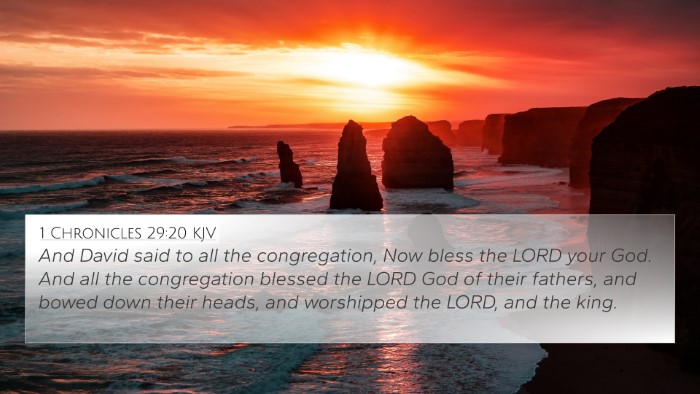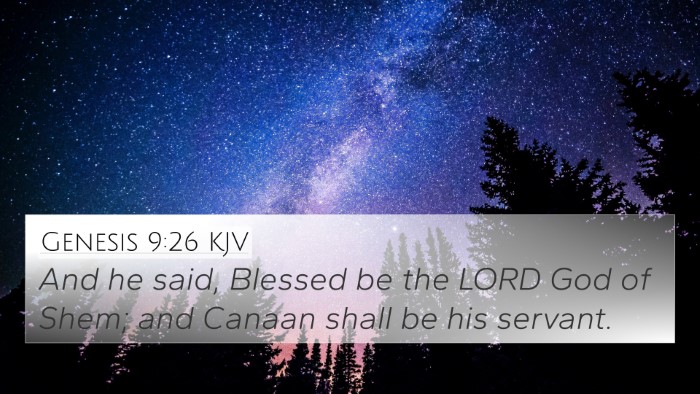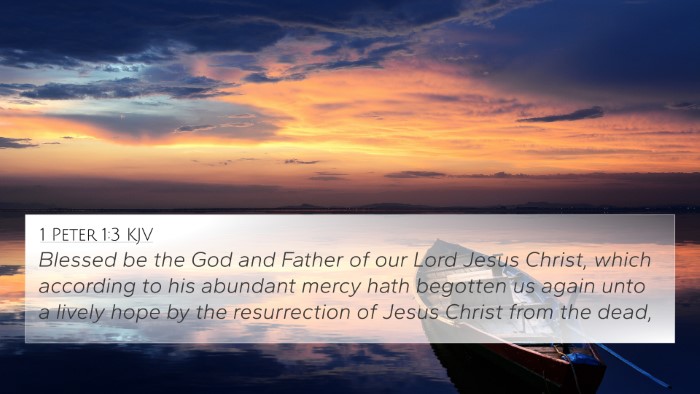Understanding Luke 1:68
Verse: "Blessed be the Lord God of Israel; for he hath visited and redeemed his people."
Verse Summary
This verse marks a significant moment in the narrative of Luke's Gospel, where Zechariah, filled with the Holy Spirit, praises God for His actions toward Israel. It introduces themes of visitation, redemption, and divine favor, setting the tone for the fulfillment of God's promises through Jesus Christ.
Commentary Insights
-
Matthew Henry's Commentary:
Henry emphasizes the blessings of God in visiting His people, highlighting that such visitations signify support and intervention in times of need. His comment underscores that God's redemption is not only physical but spiritual, as it seeks to restore both the body and the soul.
-
Albert Barnes' Notes:
Barnes elaborates on the word "visited," interpreting it as God's direct involvement in human history. This divine visitation is seen as an act of mercy and grace, culminating in the birth of Christ. Barnes notes that the redemption signifies liberation from sin and death, echoing God's faithfulness to His covenant.
-
Adam Clarke's Commentary:
Clarke remarks on the profound implications of God redeeming His people. He connects the historical context of Israel's longing for salvation to the messianic hope fulfilled in Jesus, signifying a new covenant and the end of spiritual exile.
Theological Themes
This verse encapsulates several key theological themes:
- Divine Redemption: The concept of being purchased back from sin and the consequences of a fallen world.
- Fulfillment of Prophecy: God's promises through the prophets are coming to fruition in the New Testament.
- The Nature of God's Grace: The unmerited favor that God shows to humanity, especially evident in the birth of Christ.
Cross-References
Luke 1:68 connects with a variety of other scriptures that enhance its meaning. Some key cross-references include:
- Isaiah 41:14: "Fear not, thou worm Jacob, and ye men of Israel; I will help thee, saith the Lord, and thy redeemer, the Holy One of Israel."
- Luke 2:30-32: "For mine eyes have seen thy salvation, which thou hast prepared before the face of all people; a light to lighten the Gentiles, and the glory of thy people Israel."
- Matthew 1:21: "And she shall bring forth a son, and thou shalt call his name JESUS: for he shall save his people from their sins."
- Romans 3:24: "Being justified freely by his grace through the redemption that is in Christ Jesus."
- Galatians 4:4-5: "But when the fullness of the time was come, God sent forth his Son, made of a woman, made under the law, to redeem them that were under the law, that we might receive the adoption of sons."
- Titus 2:14: "Who gave himself for us, that he might redeem us from all iniquity, and purify unto himself a peculiar people, zealous of good works."
- 1 Peter 1:18-19: "Forasmuch as ye know that ye were not redeemed with corruptible things, as silver and gold, from your vain conversation received by tradition from your fathers; But with the precious blood of Christ, as of a lamb without blemish and without spot."
Connecting Themes and Ideas
The themes of visitation and redemption in Luke 1:68 resonate throughout Scripture, providing a powerful narrative of God's relationship with His people. They reveal how the New Testament writers draw from Old Testament promises and prophecies to establish the legitimacy and significance of Jesus's mission.
Practical Applications
Understanding Luke 1:68 encourages believers to reflect on several important aspects of their faith:
- God's Faithfulness: Recognizing that God always keeps His promises.
- Hope in Redemption: Embracing the assurance of salvation and grace offered in Christ.
- Call to Worship: Responding to God's actions with praise and thanksgiving, just as Zechariah did.
Conclusion
Luke 1:68 is not only a proclamation of God's visitation and redemption but also serves as a reminder for Christians today of the rich heritage of faith found throughout the Bible. By engaging in comparative Bible verse analysis and exploring thematic Bible verse connections, believers can deepen their understanding of how these scriptural truths interlink and speak to the grand narrative of salvation.
As we study passages in light of other scriptures, we see the coherence of God's plan across both the Old and New Testaments, ultimately drawing us closer to the heart of God.
Resources for Further Study
For those interested in exploring more on this topic, consider utilizing the following:
- Bible Concordance: To find specific verses and their meanings.
- Bible Cross-reference Guide: Helpful in identifying connections between various scriptures.
- Cross-reference Bible Study: Techniques for a deeper understanding of biblical texts.
